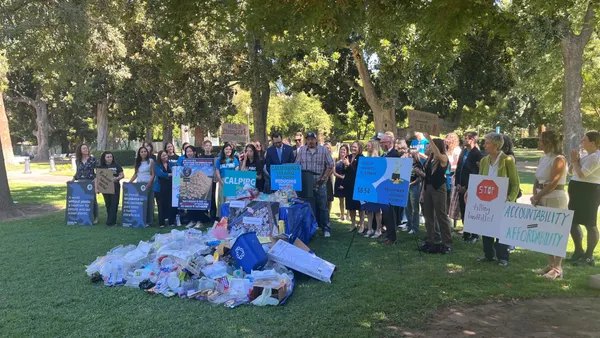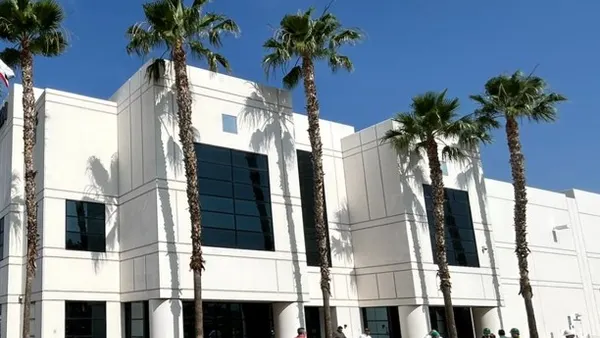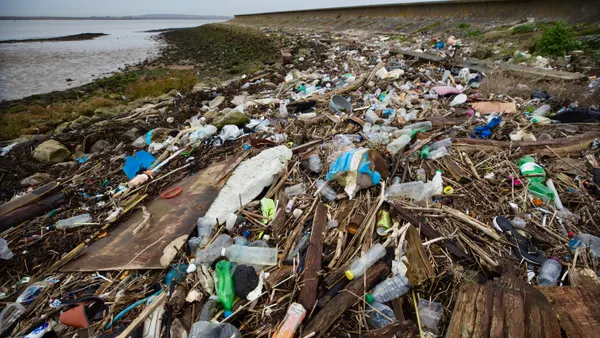Dive Brief:
- Waste Management CFO Devina Rankin believes her company's stock is undervalued. "I think it doesn't really matter if you look at us on an enterprise value to EBITDA basis or a free cash flow yield basis, we’re on sale right now relative to our competitors," she said, describing the price later as "at a discount" during an interview on the podcast Investing with the Buyside.
- When asked whether the company's strong balance sheet and low leverage signaled a major potential acquisition to come, Rankin said the company's current position is more about "strategic flexibility." She added that having "some dry powder" if "lofty" M&A valuation expectations decline would come in handy.
- Previewing future non-fleet capital expenditures, Rankin said landfill gas-to-energy projects are an area where investments could potentially increase in the medium-term to a level "that you haven’t necessarily seen over the last five to ten years." She also said that, if successful, the company's rumored "MRF of the future" could drive more recycling "because the payback on that investment is going to be so significant."
Dive Insight:
This interview between Rankin and former financial analyst Nate Abercrombie — clocking in at more than an hour — is by far the most extensive and publicly available one she has done in recent memory. During the conversation, Rankin covered a wide range of topics, including landfill management, the labor market, recycling, E&P infrastructure, fleet technology and shareholder returns.
Asked to lay out the most important financial metrics she tracks, Rankin cited "organic revenue growth, our ability to grow revenue in an efficient way by growing EBITDA dollars and margin, and then converting that into free cash flow dollars." She also touched on former CEO David Steiner's role in creating better pricing discipline, emphasizing that "no one is winning by putting garbage on sale, because no one’s going to create more garbage just because we put garbage on sale."
Rankin first became familiar with the company while working for audit firm Arthur Andersen, which was involved with Waste Management's difficult USA Waste merger, and then came on as an analyst for its financial reporting team. She has since moved up over the past 16 years to become Waste Management's treasurer and, most recently, a senior vice president and CFO as of 2017.
She said that shared experience in treasury with CEO Jim Fish, at a time when the balance sheet was less favorable, informs their current approach and has better-positioned the company to weather a potential economic downturn. The topic also came up during the most recent quarterly earnings call, when executives said more limited exposure to the housing market than in 2008 was a key factor.
The issue was also raised in most other third quarter calls, with Waste Management's competitors sharing a similar outlook. All involved believe they can still take advantage of rising waste volumes driven by population growth and increasingly valuable landfill assets. From Waste Management's perspective, as described by outgoing COO Jim Trevathan in a recent interview, the company's landfill network is viewed as being among the most well-positioned.
Whether that is accurately reflected in the company's stock price — which is currently middle-of-the-pack among peers in terms of growth rate — remains to be seen. Rankin said she expected Waste Management to allocate more than 90% of its free cash flow to buybacks and dividends in 2018. As of the Oct. 26 earnings call, the company had spent $750 million on buybacks to date.










